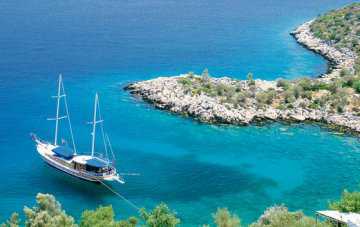/PanARMENIAN.Net/ Congressional Armenian Caucus Co-Chairman Frank Pallone (D-NJ) welcomed Armenia’s diplomatic outreach to Turkey and called on Turkey to reciprocate this gesture of good will with concrete steps toward an enduring peace based on truth and justice, reported the Armenian National Committee of America (ANCA).
The New Jersey legislator’s House floor statement comes in the wake of the recent Armenia-Turkey World Cup soccer qualifying match in Yerevan that Turkey’s President Abdullah Gul attended at the invitation of his Armenian counterpart, Serzh Sargsyan. In his remarks, the Congressman specifically calls upon Turkey to end its denial of the Armenian Genocide, to remove Article 301 and other free speech restrictions on the discussion of this crime, and to lift its illegal 15-year old blockade of Armenia.
In the days prior to the soccer match, the ANCA circulated a letter explaining to every Member of Congress that, “for this initiative to succeed, Turkey’s leaders need to view this as a true opportunity for enduring peace, not simply as a photo opportunity to help alleviate the growing international pressure it is under to recognize the Armenian Genocide.”
Rep. Pallone said in his address:
“Madam Speaker, I rise today to congratulate Armenia and its president, Serge Sargsyan, on the historic soccer match between Armenia and Turkey this past weekend.
On July 9th, President Sargsyan, in the Wall Street Journal Europe Addition, took a surprising and historic step, by inviting President Abdullah Gul of Turkey to sit with him and watch the two nations play a World Cup qualifier match in Yerevan, the capital of Armenia.
In an effort to warm relations between the two countries, President Sargisian wrote, ‘…just as the people of China and the United States shared enthusiasm for ping pong before their governments fully normalized relations, the people of Armenia and Turkey are united in their love for football.’
President Gul accepted the offer, and on Saturday, September 6th, he became the first Turkish leader to visit Armenia.
Armenia initiated soccer diplomacy with Turkey despite nearly a century of Turkish genocide denial and 15 years of an economic blockade. For years, Armenia has been ready to establish relations with Turkey without preconditions and President Sargsyan’s recent efforts reinforced this commitment. President Gul must also be commended for his efforts to see past the opposition of some in his country to attend the match.
With the recent violence between Russia and Georgia, further steps to promote stability in the Caucasus must be taken. Strengthening Armenian and Turkish relations is essential to these efforts.
Turkey can strengthen its relationship with Armenia by ending its policy of genocide denial; policy that is imposed both globally and domestically. The Turkish government lobbies heavily against the international community’s recognition of the Armenian Genocide.
Domestically, Turkey should lift all restrictions imposed by Section 301 of the Turkish penal code on individuals who study, discuss, or recognize the Armenian Genocide. Silencing academics and writers limits freedom of speech and makes any serious discussion of the Armenian Genocide within Turkey taboo.
To improve relations, Turkey must also lift its stifling economic blockade on Armenia. The State Department estimates that the blockade inflates Armenia by 30 to 35 percent. Removing the blockade will enable the development of needed infrastructure projects and regional communications, energy, and transportation in the Caucasus. The removal of the blockade would also do much to catalyze global investment in Turkey and Armenia.
With the recent conflict between Russia and Georgia, Armenia proved itself to be a constructive partner to Georgia. The Armenian government provided safe transit for U.S and international officials and thousands of Georgian nationals, and non-governmental organization representatives.
But Armenia experienced significant economic distress due to the conflict. The country lost an estimated 650 million dollars and shortages in fuel and wheat were rampant. With renewed volatility in the Caucasus, Armenia can no longer afford to suffer from duel blockades.
President Sargsyan’s initiation of soccer diplomacy and President Gul’s reciprocal invitation to watch a game next year in Turkey is a positive breakthrough in a region of historic violence and tense emotions.
As President Sargisian wrote, ‘A more prosperous, mutually beneficial future for Armenia and Turkey, and the opening up of a historic East-West corridor for Europe, the Caspian region and the rest of the world, are goals that we can and must achieve.’ As a Congress, we must do all we can to support these efforts. Thank you.”






